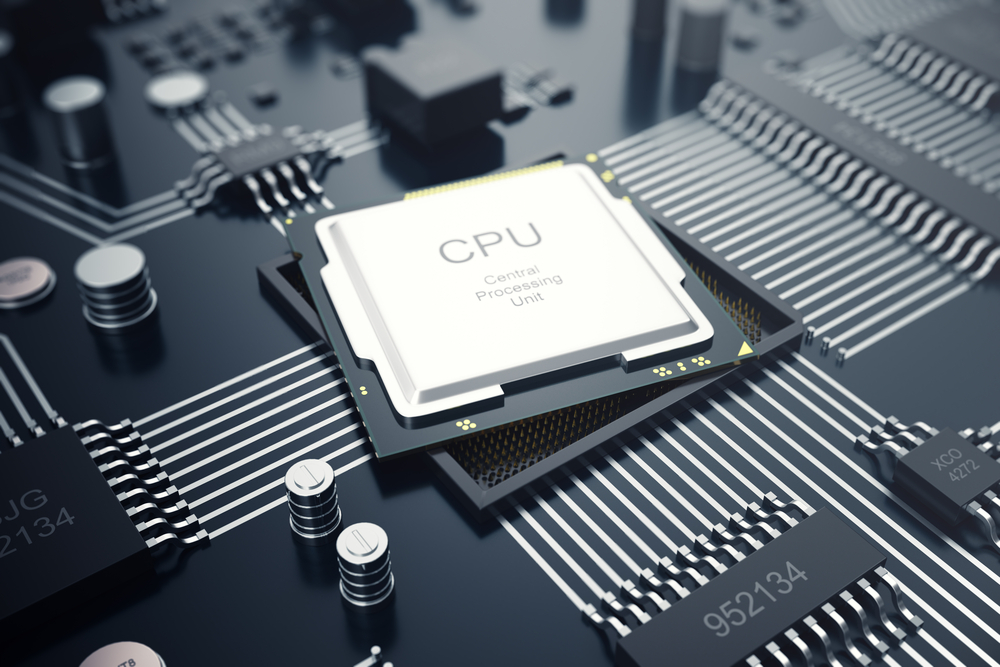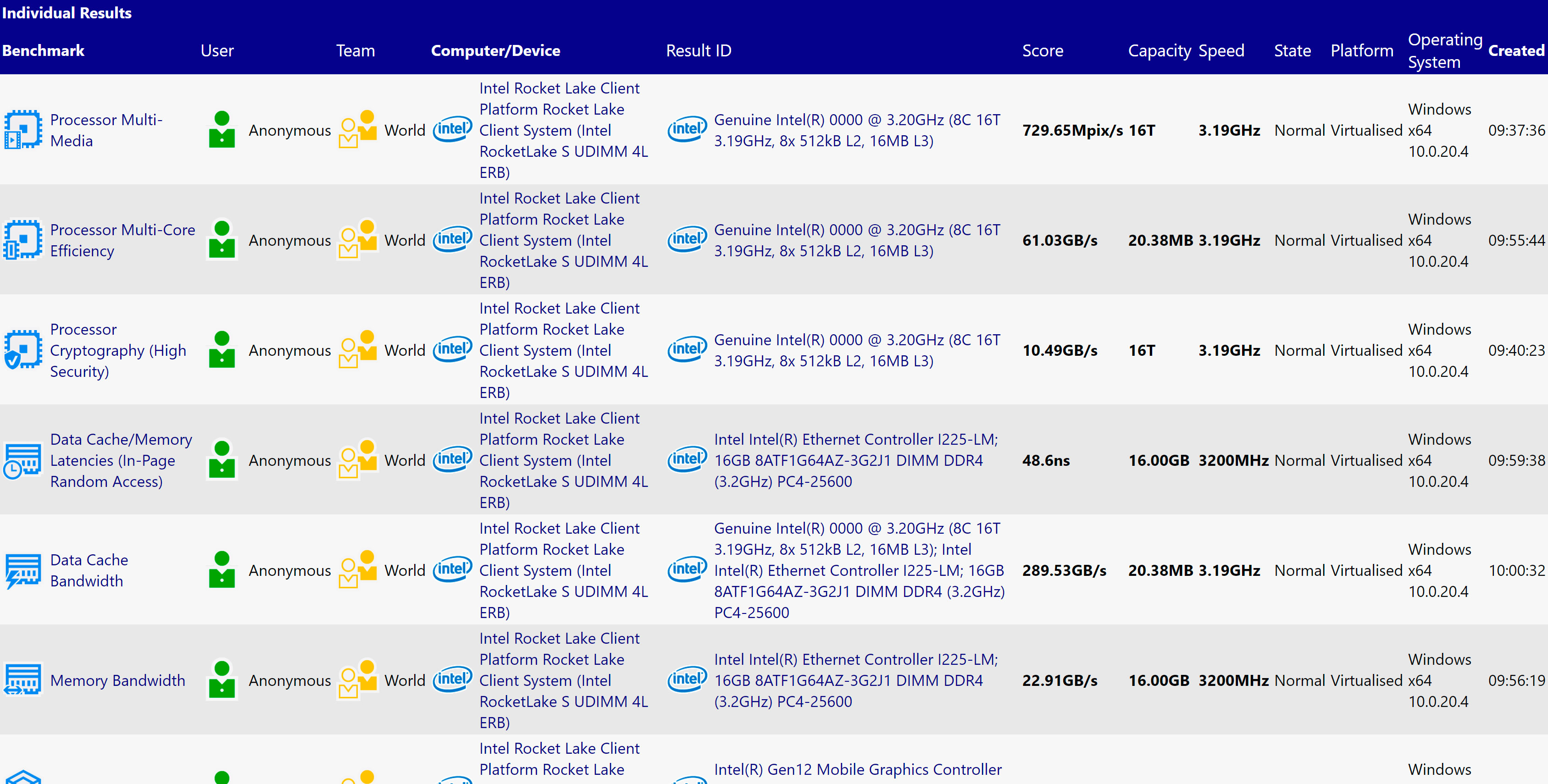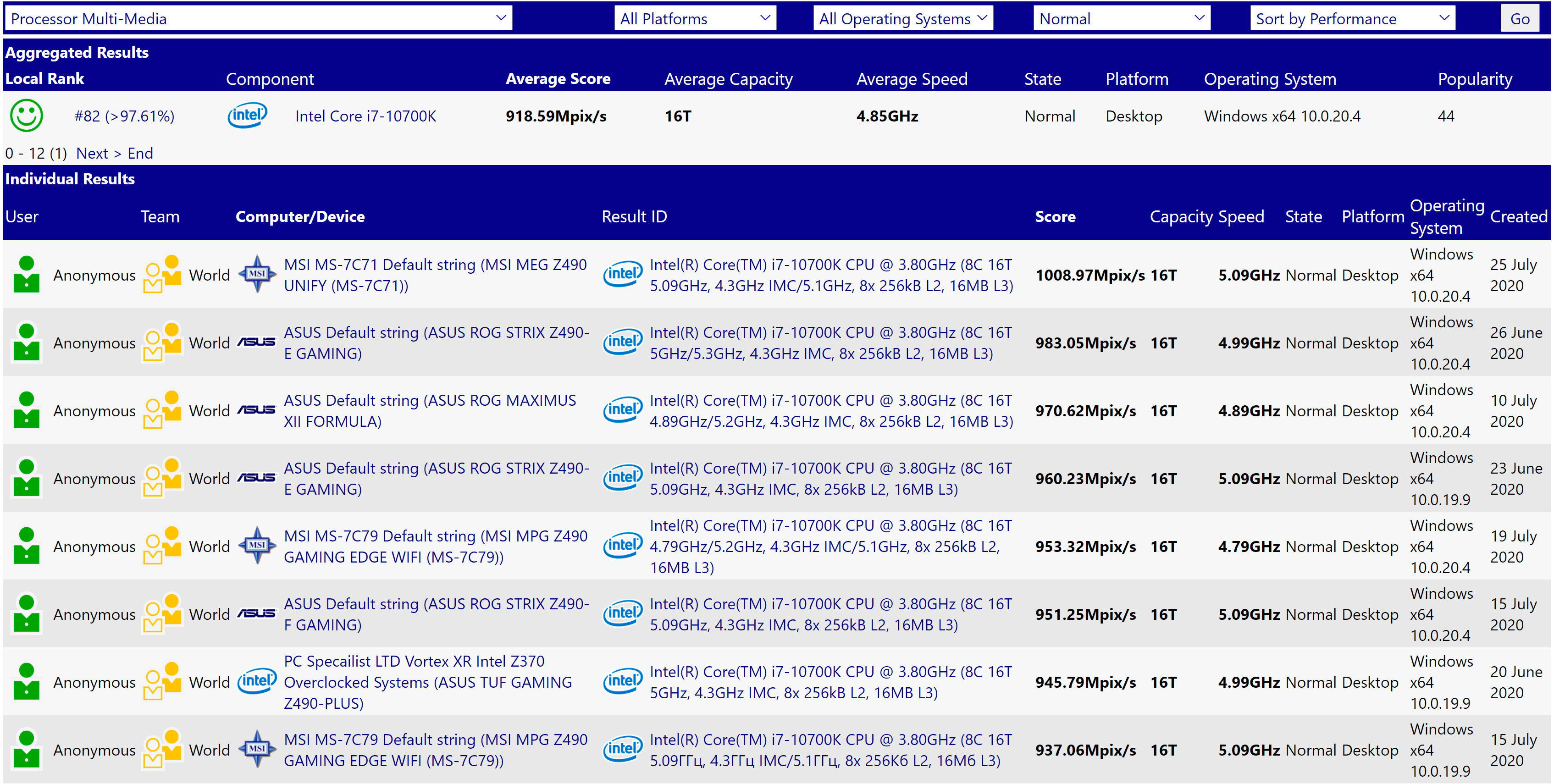Intel Rocket Lake Could Bring Notable Performance Gains Over Comet Lake

Intel hasn't committed to a specific date for launching its next-generation Rocket Lake CPUs. However, that certainly hasn't stopped the 14nm processors from popping up in the wild every once in a while.
A plethora of Rocket Lake benchmarks is now available over at the SiSoftware database, as spotted by @momomo_us, which gives us a sneak peek of the processor's performance in comparison to the current 10th Generation Comet Lake-S offerings.
The Rocket Lake chip in question comes with eight CPU cores, 16 threads and 16MB of L3 cache. Given the identical design to the Core i7-10700K, the unnamed Rocket Lake part is likely the successor to the existing octa-core Comet Lake-S chip. Rocket Lake should be similar to Comet Lake-S in a lot of ways. For example, Rocket Lake will likely employ the 14nm process node, even if it's just for the cores; there's a rumor that Intel is implementing its Gen12 Xe intel graphics via 10nm die inside a chiplet structure.
Rocket Lake processors are also expected to work on the LGA1200
CPU socket. As you know, the majority, if not all, Intel 400-series motherboards are ready for PCIe 4.0, so it's expected that Rocket Lake will come with support for the speedy interface.
Luckily, Rocket Lake may finally break away from the antiquated Skylake microarchitecture. The current speculation is that Rocket Lake will exploit the Willow Cove microarchitecture but with a slight twist. Willow Cove is designed for Intel's 10nm processors, and Rocket Lake is allegedly using 14nm CPU cores. That would mean Intel would have to backport Willow Cove to the 14nm node. Cypress Cove is the rumored codename for this backport.
Intel 11th Generation Rocket Lake Specifications
| Processor | Cores / Threads | Base / Boost Clock (GHz) | L3 Cache (MB) |
|---|---|---|---|
| Genuine Intel 0000* | 8 / 16 | 3.2 / ? | 16 |
| Core i7-10700K | 8 / 16 | 3.8 / 5.1 | 16 |
*Specifications are unconfirmed.
Based on these newfound (and unconfirmed) benchmark results, the Rocket Lake CPU was operating at a 3.2 GHz clock speed, which we assume is the base clock. Sisoftware didn't reveal or wasn't able to pick up the processor's boost clock speed. A similar octa-core Rocket Lake chip surfaced on Geekbeench 5 with a boost clock that soared to 5 GHz. We're not certain if this is the same processor.
Get Tom's Hardware's best news and in-depth reviews, straight to your inbox.
The Rocket Lake processor scored 729.65 Mpix/s on the processor multimedia test. Assuming that the chip was running at 3.19 GHz during the entire duration of the test, that equates to 228.73 Mpix/s per gigahertz.
According to Sisoftware's database, the average score and clock speed for a Core i7-10700K are 918.59 Mpix/s and 4.85 GHz, respectively. So the Core i7-10700K puts out 189.4 Mpix/s per gigahertz. If that's the case, the Rocket Lake chip delivered 20.8% higher Mpix/s per gigahertz than the Comet Lake part.
Sisoftware's average score for the Core i7-10700K is most likely skewed, since we suspect it takes both stock and overclocked results into consideration. We know that the Core i7-10700K has a 4.7 GHz all-core boost clock. If we use that value as reference, it works out to 195.44 Mpix/s per gigahertz on the Core i7-10700K, meaning the Rocket Lake offers only 17% better performance.
Neither method is accurate, but it at least gives us a faint idea of the performance uplift Rocket Lake may offer.


Rocket Lake's genetic makeup is interesting. It remains to be seen whether Intel's mix-matching approach can really put its processors back on the map though. AMD's Ryzen 3000-series (codename Matisse) processors pack 7nm CPU chiplets and a 14nm I/O die. Intel, on the other hand, reportedly combines 14nm CPU cores with 10nm graphics. It'll be a fascinating battle of the process nodes indeed.
We expect Rocket Lake to land before the year ends or maybe early next year. Whether you like it or not, Rocket Lake will end up being the stopgap solution since Intel's 10nm desktop CPUs won't launch until the second half of next year. Don't expect to see 7nm chips from Intel anytime soon either, as they likely won't come out until 2022 or 2023.

Zhiye Liu is a news editor, memory reviewer, and SSD tester at Tom’s Hardware. Although he loves everything that’s hardware, he has a soft spot for CPUs, GPUs, and RAM.
-
watzupken Considering that IPC improvement is nonexistent for the last 4 years from Intel's desktop processors, I am expecting a decent jump with a new architecture. But I rather wait and see how much IPC improvement will Rocket Lake provide over Comet Lake.Reply -
TerryLaze Reply
Instructions Per Cycle,watzupken said:Considering that IPC improvement is nonexistent for the last 4 years from Intel's desktop processors, I am expecting a decent jump with a new architecture. But I rather wait and see how much IPC improvement will Rocket Lake provide over Comet Lake.
if Cycle increases it all increases.
(same for instructions if they increase it all increases)
Rocket will have more instruction units per core but most probably also less clocks so the total improvement will still be pretty small once again because that's how you guarantee that it won't kill the next gen coming after it.